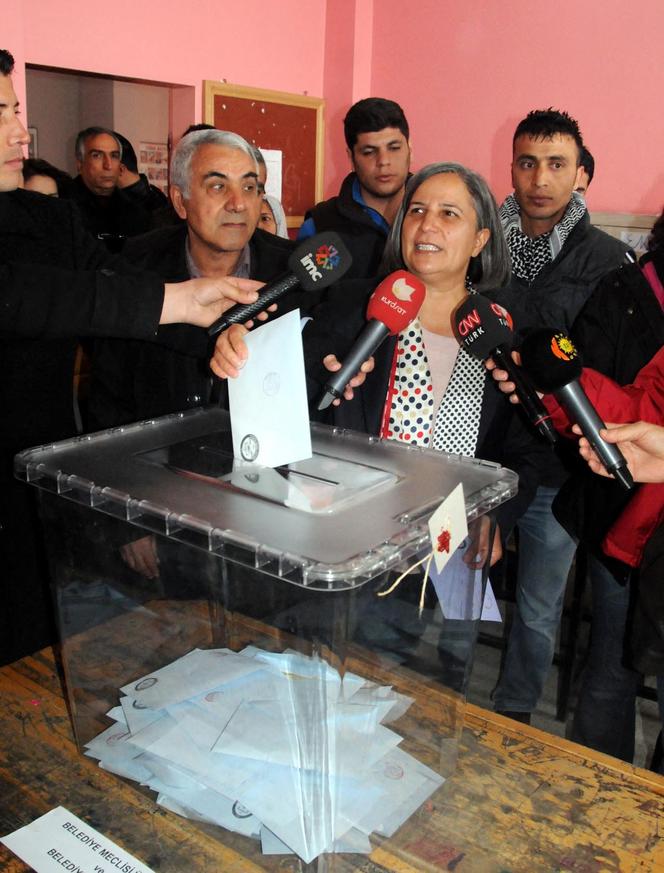

LETTER FROM ISTANBUL

Gültan Kisanak has the kind of courage you wish you had. A politician of a rare breed, she is both funny and caustic as if to keep at bay the darkness of what is being played out before her. Former mayor of Diyarbakir, the Kurdish metropolis in south-east Turkey, Kisanak is a one-of-a-kind prisoner, incarcerated in a high-security prison and a candidate in the municipal elections on March 31. She's not the first in Turkey's long history of imprisonment. Nor will she be the last. Still, her case is one of the most iconic among the dysfunctions of justice and state violence.
Imprisoned for seven years as part of the so-called "Kobane trial," the maximum detention period for Kisanak expired over four months ago. According to Turkish law, she should be released immediately. It has not happened, despite repeated requests from her lawyers. In January, when she appeared before the judges for the umpteenth time, her name was announced as the lead candidate for mayor of Ankara, the capital, by the pro-Kurdish DEM party (formerly HDP, Peoples' Democratic Party). It's a symbolic candidacy if anything, but it has the merit of reminding people of her existence. But not of her face: The authorities have refused to allow a photographer to take her picture for the campaign posters.
A teacher, a journalist, a feminist, a mother of one, and a member of parliament, Kisanak is one of the most important names in Kurdish politics in Turkey. Writer Oya Baydar describes her as "a wound on our conscience and a mirror of our historical sins."
Previously arrested in 1980, after the military coup of September 12, she spent two years in the notorious Diyarbakir prison No. 5, which British daily The Times described as one of the 10 worst in the world. She was tortured there, along with hundreds of other inmates. She rubbed shoulders with death and trauma. Later, she would say: "The coup leaders wanted to capture the souls of the Kurds, especially with the atrocities committed in Diyarbakir prison. But this had the opposite effect and triggered a movement to defend our dignity."
In 1991 she joined the Güneş newspaper before contributing to various pro-Kurdish left-wing dailies and magazines. In her early thirties, she became involved in the women's movements, prominent in the region. She also worked for a time as a consultant for Diyarbakir municipality. In the 2007 elections, Kisanak was elected to office on an independent list and quickly made a name for herself with her rhetoric on the need for a change of approach to the Kurdish question. The time was still ripe for openness and negotiations with Ankara.
You have 54.52% of this article left to read. The rest is for subscribers only.
